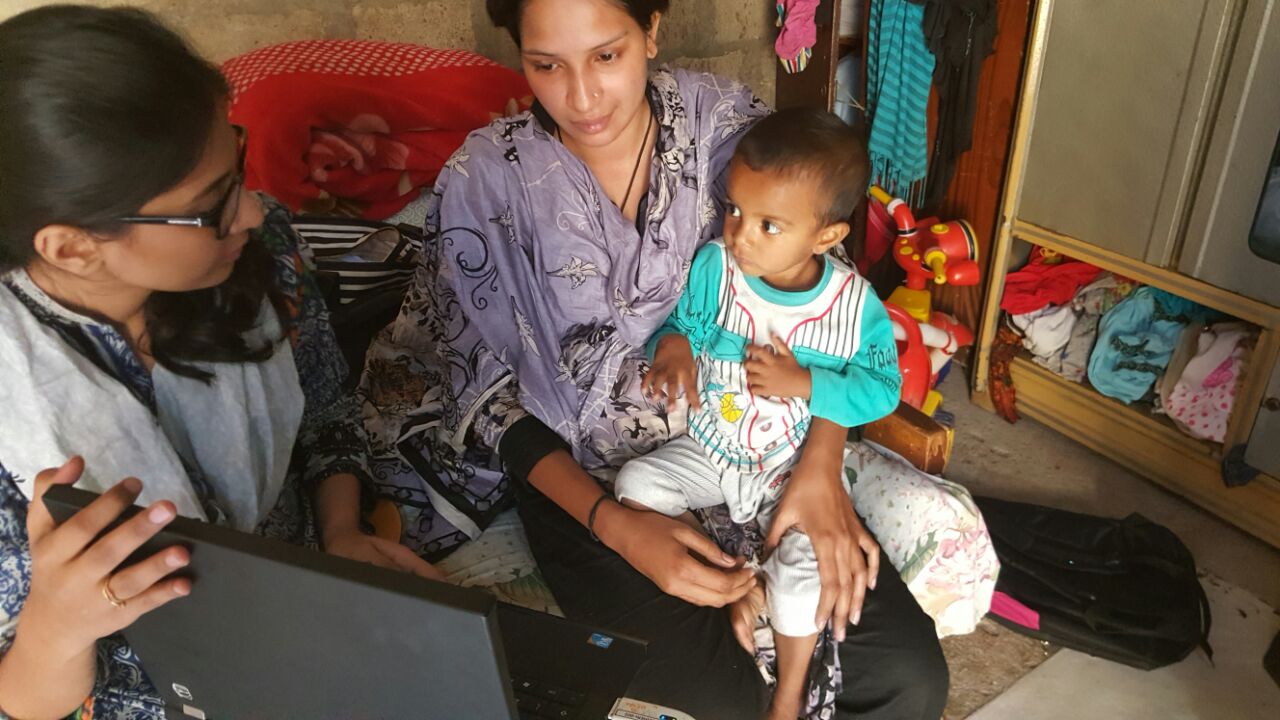with our monthly newsletter.

Lately, some days feel digitally inspiring and others are digitally overwhelming, with a constant flow of new technologies, data sets, partners, and ways of working. Organisations are undergoing digital transformations to adapt their cultures, structures, and offerings to better serve their communities and partners. The aid and development sector is no different, which is why DFID has formally adopted the Principles for Digital Development (the Principles) in their newly released Digital Strategy. Palladium has been an early endorser of the Principles since 2015, and we are celebrating the formal incorporation of the Principles into DFID’s way of doing business.
The Principles are a set of nine aspirations, intended to guide the effective use of digital technologies in international development work. We must acknowledge that new technologies also pose risks, including the potential to create a “digital divide” that can further marginalise or put vulnerable people and communities at risk. The United Nations reminds us that there are still nearly four billion people offline, and one of the goals of the 2030 Agenda for Sustainable Development is not only to increase access to information and communications technology, but to establish a “universal standard for development that leaves no one behind.” At Palladium, we are keenly focused on ensuring technology is used appropriately to ensure that the great strides taken in equity and inclusion are not lost due to an unintentionally over-zealous pursuit of impact expansion and growth.
Palladium has seen clear evidence across our global programmes that technology can accelerate development - empowering people, giving them new tools to pull themselves out of poverty, and transforming markets to be more inclusive. For example, mobile phone platforms can provide information and services to rural, extremely hard-to-reach communities, supported by drone deliveries of health commodities that meet immediate needs.
DFID’s Digital Strategy highlights two excellent examples from Palladium’s work (Shule Direct and Sehat Kahani) that exemplify the power of the Principles at work and how they have shaped our programmes to be adaptive and grounded in learning, and which present two reasons we will continue aspiring to the Principles.
Designing with users leads to growth
Palladium leads the implementation of the Human Development Innovation Fund (HDIF), which is a £39.4 million challenge fund supporting innovations in health, education, and Water, Sanitation, and Hygiene (WASH) in Tanzania. One of HDIF’s 36 grantees is Shule Direct, which provides online multiple choice quizzes and short lessons covering nine subjects based on the national syllabus to help secondary school students practice for their examinations. As mentioned in DFID’s Digital Strategy, “Shule Direct realised that over 85% of the users accessing their open educational resource were doing so over Opera Mini browsers, which are designed for mobile phones.” By understanding how their users were accessing content, Shule Direct was able to pivot and add improved design features within Opera Mini and roll out a new, lower cost learning platform using SMS, called ‘Makini SMS.’ Through Makini SMS, Shule Direct is now reaching more students, including students who do not have access to a computer or smart phone.
Digital technology has the power to increase equity
As pointed out in DFID’s Digital Strategy, approximately 70% of medical school graduates in Pakistan are women; however only 13% of licensed female doctors are registered as physicians. And, approximately 60% of Pakistanis do not have access to quality, affordable healthcare.
The SPRING Accelerator’s partner, Sehat Kahani, runs a telemedicine social enterprise in Pakistan to address multiple issues of inclusion. Their business is based on an all-female healthcare provider network that is equipped with technology tools such as patient portals, electronic delivery of images, and video conferencing to empower more women to serve and be served. Through the effective use of technology, Sehapt Kahani can deliver quality services to rural or marginalised communities, while mitigating the impact of cultural issues that limit the ability of women to enter the formal economy.
Adaptive implementation facilitates appropriate technology
A strength of both HDIF and the SPRING Accelerator are their adaptive approaches to implementation, keeping a keen focus on the intended positive impact over time by emphasising learning and iteration over any prescribed solution or approach. The Principles provide a guiding compass to help navigate challenges and keep focused to achieve long-term goals through user insights and learning.
For example, HDIF has embedded a learning agenda specifically using the Principles, which is generating feedback for HDIF to improve its strategies and activities while sharing learning with external partners and the broader technology for the development community. HDIF shares white papers and case studies on its learnings from putting the Principles into practice. Palladium is committed to integrating established best practices, like user-centred design and data-based decision-making, into technology-enabled programmes to produce stronger and more sustainable outcomes. We also continue to support the Digital Impact Alliance’s (DIAL) work to promote learning around the Principles.
Further, this April and May, Palladium will continue this learning and leading journey by publishing a three-part series on the Principles in Disrupt Africa, which will look at current examples of how the Principles can be applied by social enterprises to enable greater positive impact. Palladium’s work has followed and supported the Principles, and we continue to use them as a guide to lead the sector in using technology to unlock greater efficiencies, extend and expand our positive impact, and transform our way of doing business.
with our monthly newsletter.
